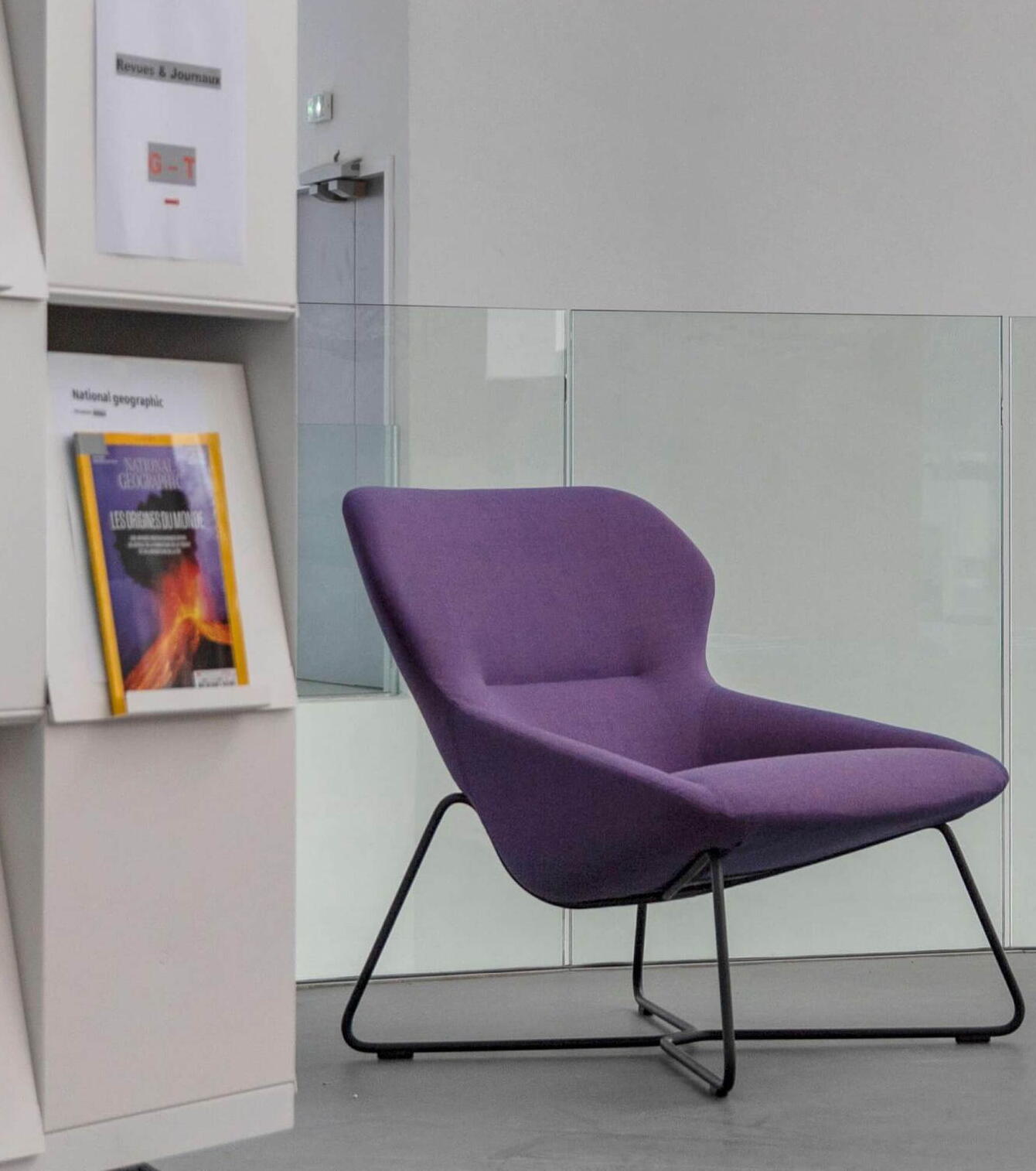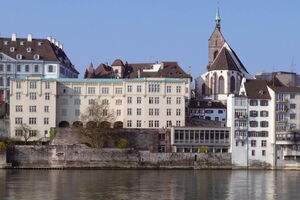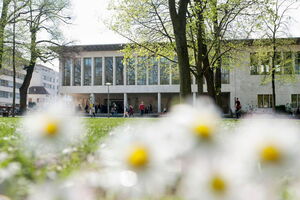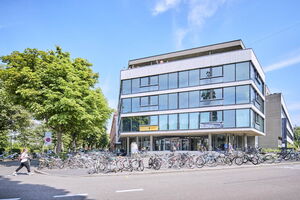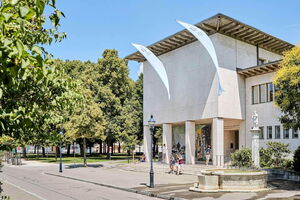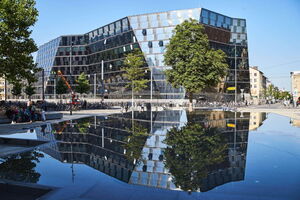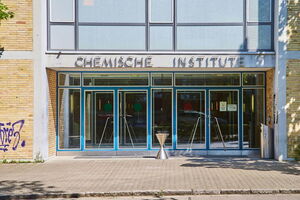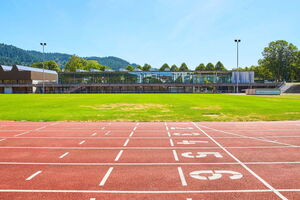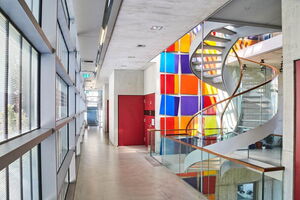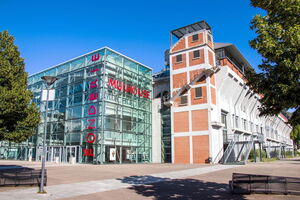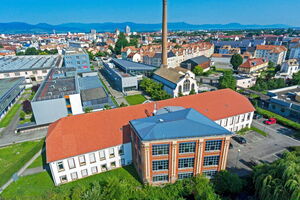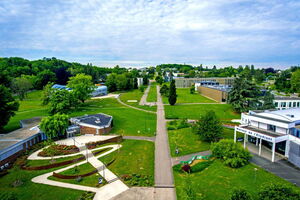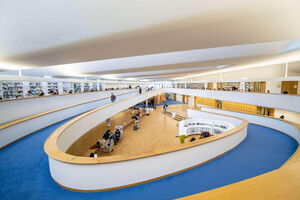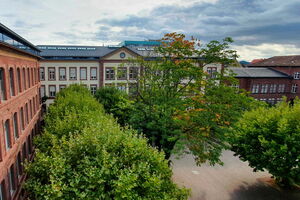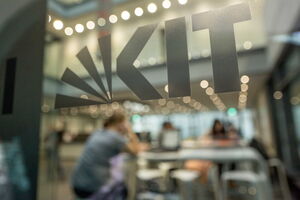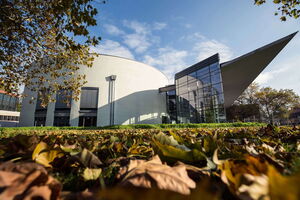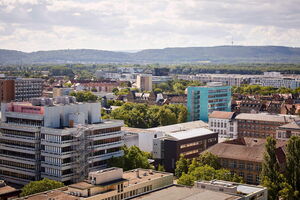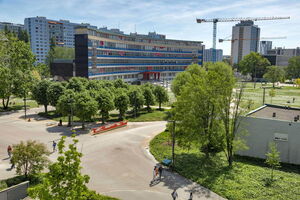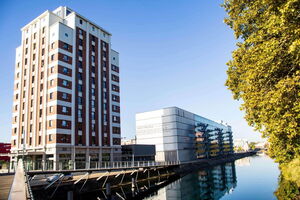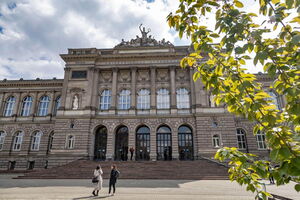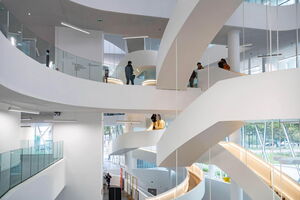Eucor – The European Campus
5 universities - 3 countries - 1 campus
Eucor – The European Campus is a trinational alliance of five universities in the Upper Rhine, a border region between Germany, France and Switzerland. Its members are the universities of Basel, Freiburg, Haute-Alsace, Strasbourg, and the Karlsruhe Institute of Technology (KIT). Together, these institutions crystallise the skills of some 17,000 researchers, 9,900 doctoral candidates and 120,000 students in a region that is economically strong and research intensive in the heart of Europe. Their aim is to build a scientific space with a clearly defined profile, without walls or borders and with international outreach.
Eucor – The European Campus is the first European Grouping of Territorial Cooperation (EGTC) established by higher education institutions. This enables the universities to develop a joint strategy in research and teaching and to create overarching structures for science in the Upper Rhine region. The aim is to promote cross-border studying, teaching and research.
University of Basel
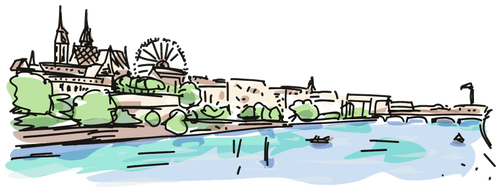
The University of Basel is the oldest in Switzerland. Founded in 1460, it can rely on more than 560 years of history. With a broad and high-quality comprehensive course offering, it attracts students from Switzerland and around the world and offers them excellent study conditions, both at undergraduate level and at the master’s or doctorate level. It currently has about 13,000 students from more than 100 countries, including 3,000 doctoral candidates.
Within its seven faculties, the University of Basel cultivates a wide range of scientific disciplines. It is an important center of European humanism, has preserved its humanist tradition to the present day, and will remain committed to it in the future. Over the course of the 20th century, it also grew into one of Europe’s most successful research universities, with a particular focus on life sciences and medicine. As a traditional university, the University of Basel combines humanities and social sciences, natural sciences, life sciences, and medicine under one roof. In international rankings, the University of Basel is regularly placed among the 100 top universities in the world thanks to its research achievements.
"Overcoming borders – day after day. This is what we have been doing with Eucor for more than 30 years, working together in a spirit of trust. Our goal: a scientific space with a clear profile and international outreach."
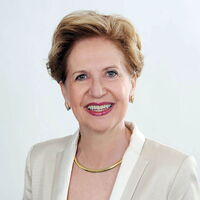
Prof. Andrea Schenker-Wicki
Eucor President and President of the University of Basel
University of Freiburg
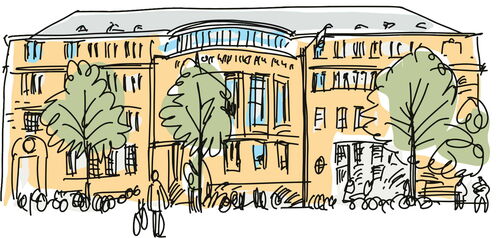
The University of Freiburg was founded in 1457 and has an excellent reputation regarding studies, teaching, research and continuing education. Twenty-three Nobel Prize winners have researched, taught and studied at the university. That it receives 220 million euros in external, third-party funding every year demonstrates its strength in research. As a comprehensive university, the University of Freiburg offers undergraduate, postgraduate and doctoral degrees as well as postdoctoral lecture qualification in all important areas of study: the humanities, economics, natural sciences, life sciences, engineering, medicine, law and theology. More than 24,000 students are enrolled at the university.
Thanks to its broad spectrum of disciplines, the University of Freiburg offers optimum conditions for excellent research in its eleven faculties and central research institutes. Its current partnerships with research institutions that are not affiliated with the university, like the Max Planck Institutes and Fraunhofer Institutes in Freiburg, and with regional companies are another foundation for many successful collaborative projects.
Researchers from various disciplines work together on a single topic in the university’s seventeen research centres, more than 100 academic units in its faculties and its numerous collaborative research centres. From medieval studies, the research of renewable energies, materials science, all the way to the life sciences: researchers profit from this shared infrastructure. In their projects, they also go beyond the university’s borders and cooperate with national and international partners. Thanks to its international reputation, the university is also able to recruit excellent researchers from all over the world. Eighteen percent of its students are from abroad. With more than 500 partner universities and programmes as well as the Alumni Freiburg association, the University of Freiburg has a first-rate international network at its disposal.
University of Haute-Alsace (UHA)
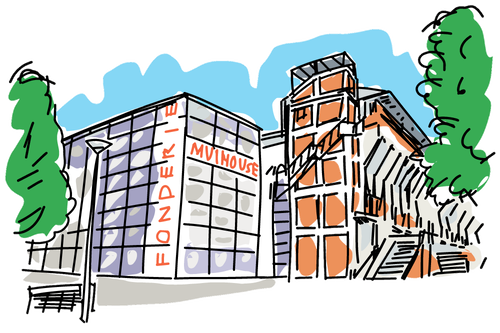
The University of Haute-Alsace (UHA) is a young university, established 50 years ago in the southern part of Alsace (Mulhouse, Colmar), located at the heart of the Upper Rhine Valley. However, higher education has been present in Mulhouse since 1822 with the founding of the School of Chemistry and the introduction of textile engineering in 1861. Responding to the needs of the industry by training high-level experts is the foundation of the University. The institution is still and always keen to keep this link between science, technology and transfer alive.
The city’s industrial history has significantly influenced UHA’s scientific expertise, positioning it as one of the leading research institutions both nationally and internationally. Haute-Alsace University defines itself as an innovative university, actively engaged in developing comprehensive and ambitious projects in the areas of future industries, innovative materials, and sustainable development. These initiatives are closely aligned with the strategic objectives of Alsace, as well as cross-border and international partnerships.
The University of Haute-Alsace brings together academic programs and research initiatives that address the challenges of innovation and development in the area:
- 10 000 students enrolled across Mulhouse and Colmar campuses
- 16 research laboratories of which, 3 Mixed Research Units (UMR) from the National Scientific Research Centre (CNRS)
- 7 doctoral schools co-accredited with the University of Strasbourg
- Innovative projects, winners of calls for proposals at a national level: Démo UHA, Mat-Light 4.0, Disrupt 4.0, ELAN…
"Eucor offers unique opportunities for UHA students and staff that you won‘t find anywhere else! Eucor is a wonderful catalyst for Franco-German-Swiss friendship and co-construction."
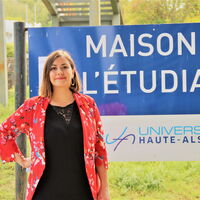
Léa Ziri
Director of the Office of International, European & Cross-Border Affairs, UHA
Karlsruhe Institute of Technology (KIT)
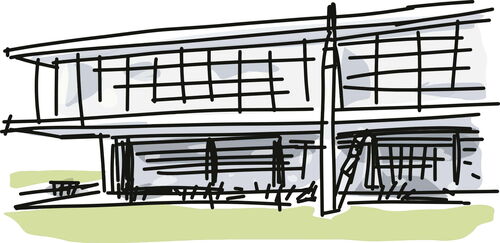
The Karlsruhe Institute of Technology (KIT) is positioned as “the Research University in the Helmholtz Association”. It creates and transmits knowledge about society and the environment and prides itself on delivering outstanding results from basic research to applied research in natural sciences, engineering, economics, the humanities and social sciences. It makes a significant contribution to the global challenges facing society in the areas of energy, mobility and information. Its central missions are research, teaching and innovation. With some 9,200 employees and 22,000 students, the KIT is one of the largest scientific institutions in Europe.
Through its research-oriented curricula, it prepares its students for assignments with responsibility in society, economics and science. Through its innovation activity, it makes the link between knowledge and application for the benefit of society, economic prosperity and the preservation of our natural resources. KIT is one of the German universities of excellence.
"New cross-border friendships, improvement of language skills and a diverse offer of university courses – Going on a Eucor Mobility is a great chance to discover the Upper Rhine region"
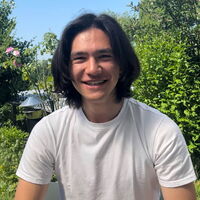
Jonathan Döffert
Student at KIT and the University of Strasbourg
University of Strasbourg
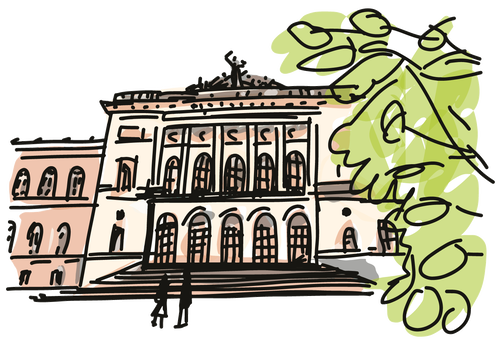
Marked by a history ranging from the Rhine humanism of the sixteenth century to the European Campus of the twenty-first century, the University of Strasbourg is labelled university of excellence by the Idex device whose values, prestigious awards and distinguished personalities contribute to advancing research and its enhancemment by finding original solutions in order to solve complex problems whilst boosting an offer of innovative multidisciplinary teaching. Benefiting from a privileged location and exceptional heritage, it welcomes a cosmopolitan community into a creative cultural and scientific ecosystem.
The University of Strasbourg has more than 54,800 students each year, including 22% foreign students, 6,100 teachers/researchers and staff, 35 teaching and research units and 77 research units. By developing synergies with research organisations, communities and the socio-economic fabric, it develops relationships with its partners that allow it to develop, cultivate and transmit knowledge, share it and stay in touch with society.
